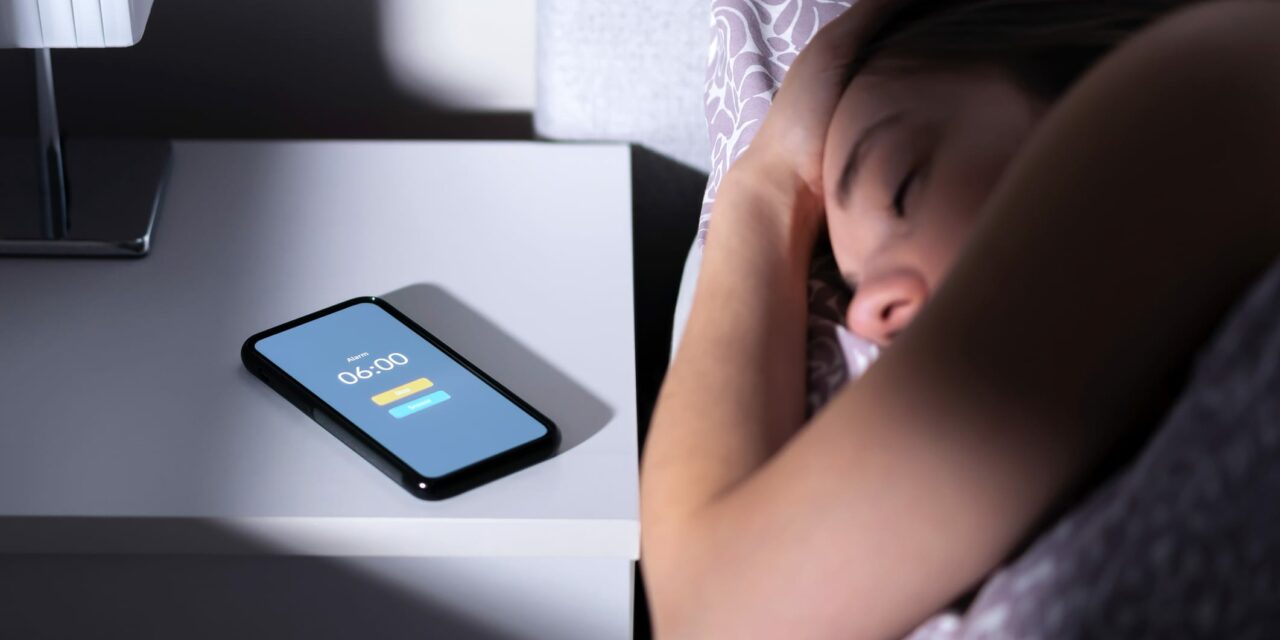Hitting snooze button, an action that many of us are familiar with, especially if you’re among the younger generation. The temptation to steal a few extra moments of slumber when the alarm jolts you awake is all too real.

Hitting Snooze Button Can Alleviate Morning Sleepiness (Photo: Sleep Review)
The Science of Snooze: Debunking the Myths
In a recent report featured by the Healthline, in October 20, 2023, the resounding advice to avoid the “snooze” button has echoed through countless mornings. Many have heard the warnings of its alleged disruption to deep sleep patterns, and some have been chastised by early risers for their persistent snooze-tapping habits. However, is this common wisdom entirely accurate? Are we indeed losing by hitting snooze button? Recent research suggests that the answer might not be so straightforward. In fact, new studies indicate that “hitting snooze button” may not be the sleep-sabotaging villain it’s often portrayed to be. It explores into the science behind the snooze button, uncovering surprising findings that challenge conventional beliefs.
For years, the prevailing notion was that hitting snooze button disrupted your sleep cycle. This belief was based on the idea that inconsistent wake and sleep times were detrimental to one’s overall sleep quality. The fear of “sleep inertia” – that morning grogginess that seems to hang around like an unwelcome guest – often deterred people from embracing this morning ritual.
However, recent research published in the Journal of Sleep Research challenges these assumptions. It reveals that hitting snooze button may not be as detrimental as previously thought. In two comprehensive studies – one involving self-reported surveys of habitual snoozers and another conducting laboratory-controlled sleep experiments – researchers found no significant negative impact of hitting snooze button on sleep quality or overall sleep duration. Dr. Sara E. Benjamin, Medical Director of Johns Hopkins Sleep Disorders Center, affirms that incorporating a “snooze” into your routine doesn’t harm your total sleep architecture or your daytime functioning.
READ ALSO: Yung Bleu Accused Of Battery In Custody Dispute, Adding To Recent Personal Controversies
Studying “Habitual Snoozers” and Their Morning Performance
According to the data released by The Conversation, the second part of the research focused on “habitual snoozers,” individuals who rely on hitting snooze button regularly. Notably, these were younger individuals with “later chronotypes,” meaning they naturally gravitated towards later sleep and wake times. It’s important to understand that sleep studies often depend on a participant’s age, as younger individuals tend to experience different sleep patterns. The study was conducted with healthy sleepers, excluding those with pre-existing sleep issues.
In this phase, participants spent three nights in a sleep lab, alternating between using and hitting snooze button and waking up instantly with their alarms. Cognitive tests, including math problems and word memorization, were administered upon waking. Surprisingly, the snooze group performed slightly better on these tests. Although they had slightly less sleep on snooze days, it didn’t translate into increased sleepiness.
It appears that hitting snooze button might not be the villain it’s been made out to be. These studies suggest that for healthy sleepers, incorporating a little snooze time into your mornings might not negatively affect sleep quality or daytime alertness. However, it’s crucial to emphasize that these findings apply primarily to individuals without pre-existing sleep disorders. If you find yourself perpetually groggy, even after snoozing, it might be wise to consult a physician to investigate potential sleep disorders. Hitting snooze button may not be a foe after all, but it’s essential to strike a balance between snooze time and total sleep duration to ensure a well-rested morning and day.
READ ALSO: Texas Deputy Police Chief Taken Into Custody On Allegations Of Domestic Violence And Assault Involving A Deadly Weapon
























